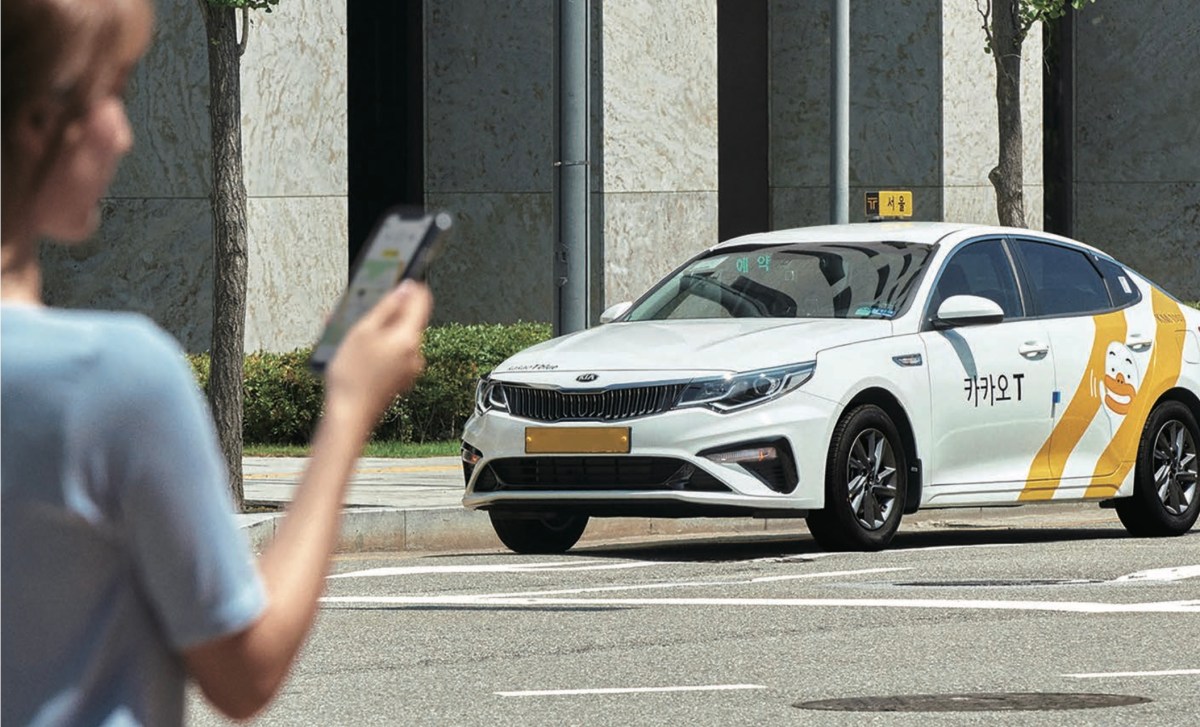Kakao Mobility hit with $10.5M antitrust fine for limiting rivals’ access
South Korea’s antitrust watchdog has fined Kakao Mobility, the ride-hailing unit of Korean tech firm Kakao, $10.5 million (KRW 15.1 billion) for limiting competitors’ access to its taxi app — lowering the penalty from an initial fine of $50.3 million (KRW 72.4 billion) as the earlier sanction was based on an overestimated calculation of the company’s operating profits.
Separately, in November, the Financial Services Commission fined the taxi-hailing firm $2.47 million (KRW 3.4 billion) for suspected accounting fraud, referring the case to the prosecutor for further investigation.
Kakao Mobility offers general ride-hailing services via its Kakao T app and franchise-hailing services under its subsidiary brand, “Kakao T Blue”, also within the same app.
Franchise taxis, including Uber and local peer TADA, can use Kakao’s platform since general taxi hailing is a brokerage service that intermediaries provide to all drivers on the platform under South Korea’s Passenger Transport Service Act. While franchise taxis work with platform-based transportation providers such as Uber to provide specialized hailing services as an alternative to regular hailing — such a differentiating on car quality, say, or pick-up time.
Kakao Mobility holds the largest market share in the country’s taxi-hailing market, capturing a 96% market share as of 2022, according to a statement by the Korea Fair Trade Commission (KTFC) in October. As of October, Kakao Mobility, also known as Kakao Taxi, remained the market leader — with 13.2 million monthly active users — while rivals Uber, TADA, and I’M had 700,000; 6,400; and 5,800 MAUs, respectively, per a local media report.
Last month, the KTFC stated that Kakao Mobility had demanded franchise competitors, such as Banban, Macaron Taxi, TADA, and Uber Taxi (formerly known as UT), either pay a fee for their drivers’ access to the Kakao T app or sign partnership agreements allowing Kakao Mobility to collect their operational data, including sensitive business information such as driver details. If they refused, franchise drivers who use Kakao’s platform would be blocked from using the Kakao T app.
Uber and TADA did not have partnerships with Kakao Mobility, causing their taxi drivers to block the use of its Kakao T app. Instead, Banban and Macaron Taxi partnered with Kakao Mobility, according to the KFTC’s October statement. The partnerships helped Kakao Mobility grow its marketshare from 51% in 2020 to 79% in 2022, cementing its market dominance.
“Blocking [franchise taxis from accessing calls on the Kakao T app] is actually done to minimize call duplication between platforms and enhance user convenience,” claimed J Choi, a spokesperson at Kakao Mobility, in an emailed statement.
“Kakao Mobility is fully committed to supporting the government’s initiatives to promote fair competition within the platform industry while concurrently pursuing administrative litigation to unequivocally demonstrate that no legal violations occurred,” the statement added.
Kakao reported an improved operating profit for the third quarter of this year in November, but concerns remain as the improvement came without sales growth. Furthermore, the company’s new chat-based AI service, Kanana, which aims to launch a closed beta service next year, is receiving a mediocre market response due to its limited data allocation, per local media reports.
In other recent news, Kakao’s chairman and founder, Brian Kim, was granted bail in October after 100 days of arrest for alleged involvement in stock manipulation.







